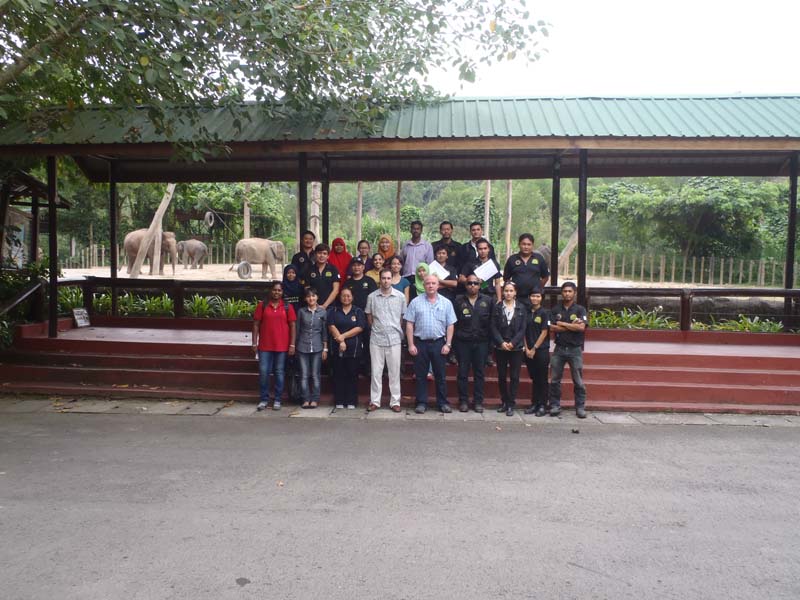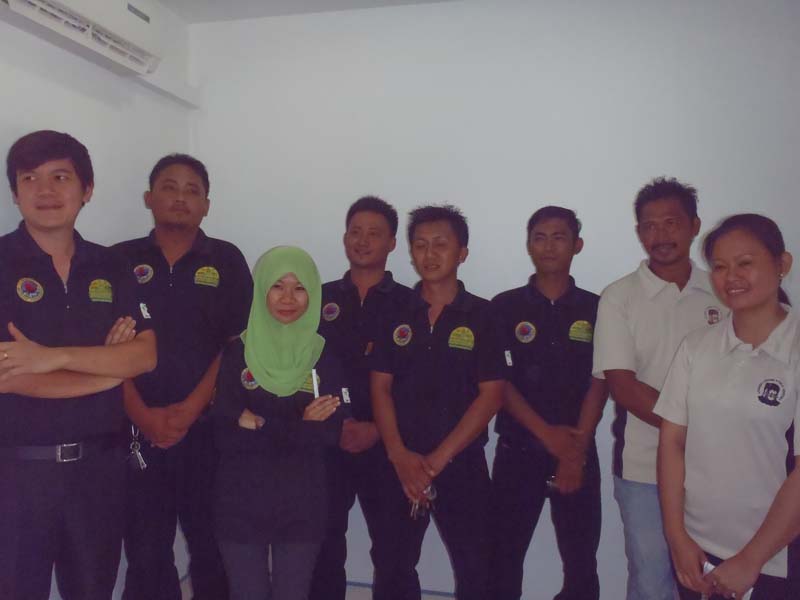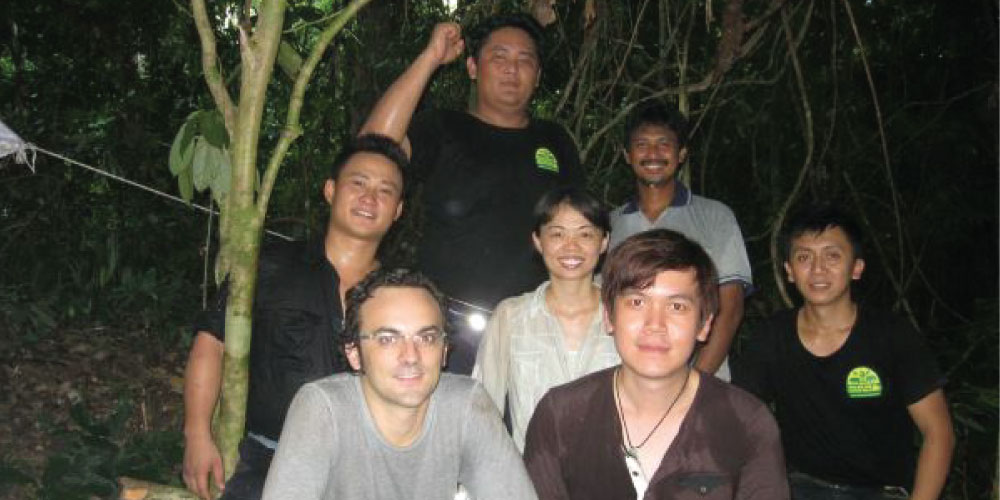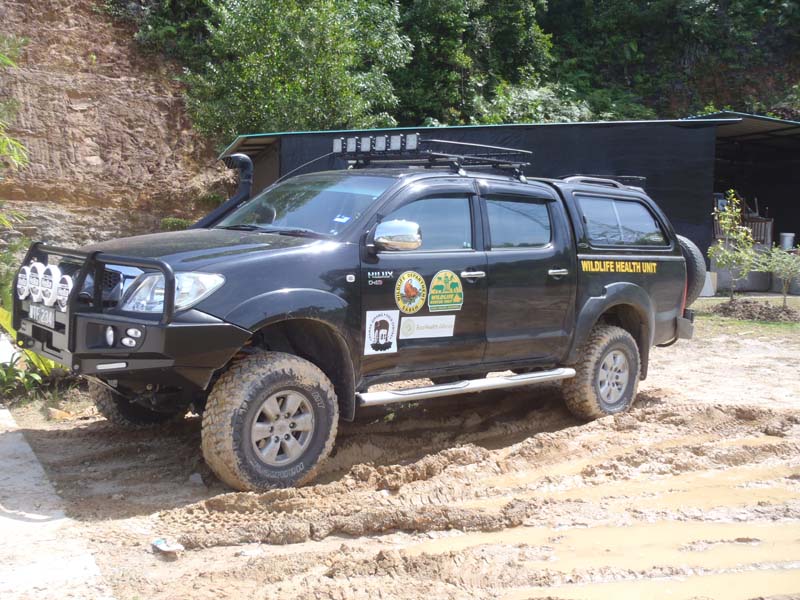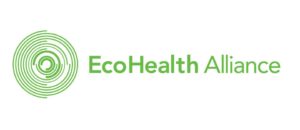 Since 2011, DGFC has been actively collaborating with EcoHealth Alliance on zoonotic diseases. In addition, several training courses on zoonotic pathogens and primate sampling, safety and biosecurity protocols have been organised by EHA. The courses have been attended by staff from DGFC. The main projects we collaborate on are:
Since 2011, DGFC has been actively collaborating with EcoHealth Alliance on zoonotic diseases. In addition, several training courses on zoonotic pathogens and primate sampling, safety and biosecurity protocols have been organised by EHA. The courses have been attended by staff from DGFC. The main projects we collaborate on are:
PREDICT is a project of USAID’s Emerging Pandemic Threats Program and is led by the UC Davis One Health Institute. Emerging infectious diseases pose a significant burden on human and animal health and global economies. The PREDICT project aims to prevent, detect, and rapidly respond to the spillover of novel infectious pathogens from wildlife to humans. The goal of PREDICT in Malaysia is to integrate wildlife disease surveillance into the public health infrastructure in order to create an early warning system for potential zoonotic disease spillover into domestic animals and humans. PREDICT Malaysia is a collaboration between EcoHealth Alliance (EHA), Global Viral (GV), Department of Wildlife and National Parks (DWNP), Department of Veterinary Services (DVS) and the Veterinary Research Institute (VRI), the Ministry of Health (MoH), Department of State Health Sabah (DSHS), Sabah Wildlife Department (SWD) and Danau Girang Field Centre (DGFC). Within the PREDICT project, EHA, SWD and DGFC established a Wildlife Health Unit (WHU), a branch of the Wildlife Rescue Unit (WRU) , to conduct active surveillance across Sabah. Samsir Bin Laimun, DGFC’s senior research assistant, is an active member of WHU, taking part in sampling expeditions in Kinabatangan and in other areas in Sabah. Moreover, EHA, SWD and DGFC set up the Wildlife Health Genetic and Forensic Laboratory (WHGFL) in Sabah, a BSL 2 Lab certified in accordance with laboratory standards set by the NIH and the CDC.
More information on PREDICT can be found here
Publications as part of the PREDICT Consortium:
Deforestation is the permanent destruction of forests in order to make the land available for other uses such as agricultural and farm expansion, urban planning and extractive industries. Thousands of wildlife species rely on the delicate ecosystems created by the richly bio-diverse forest environments. Deforestation and human encroachment displaces these species and forces heightened interaction between people and animals indicating a high potential for disease transmission. EcoHealth Alliance, Sabah Wildlife Department and DGFC, through the Wildlife Health Unit, have sampled species (rodents, bats, small mammals and monkeys) for pathogens in the Kinabatangan along a deforestation gradient, looking at areas with no deforestation, some deforestation, and areas where once pristine forests have been completely removed. The other two countries involved in the PROJECT DEEP FOREST are Brazil and Uganda.
Land-use change is a significant driver of emerging infectious disease. Over 60 percent of emerging infectious diseases over the past six decades, including SARS, H1N1/Swine Flu, and HIV-AIDS have originated in animals, with nearly half of these linked to changes in land-use. Forest degradation resulting from agricultural intensification and other human activities accounts for about 15 percent of greenhouse gas emissions – roughly equivalent to the emissions generated by the entire global transportation sector. The key to reducing the threat from diseases with pandemic potential and slowing global climate change is to more accurately account for the value of ecosystems and base land-use choices on real benefits and costs.
The four main goals of the Infectious Disease Emergence and Economics of Altered Landscapes (IDEEAL) project are to:
- Build economic models of land-use change and disease emergence that can be used by local and regional decision makers;
- Describe the relationship between disease emergence, land-use change, and human behavior, and quantify an ecosystem’s disease regulating value;
- Build toolkits and establish a center of excellence to develop and promote best practices, research, and reduced-impact land use guidance; and
- Engage private companies and educate and empower civil society stakeholders to work together for a healthy and sustainable future.
IDEEAL project is funded by USAID and is currently based in the Kinabatangan Basin where EcoHealth Alliance works very closely with Sabah Wildlife Department, DGFC, Universiti Malaysia Sabah as well as representative community groups.
The four main goals of the Infectious Disease Emergence and Economics of Altered Landscapes (IDEEAL) project are to:
- Build economic models of land-use change and disease emergence that can be used by local and regional decision makers;
- Describe the relationship between disease emergence, land-use change, and human behavior, and quantify an ecosystem’s disease regulating value;
- Build toolkits and establish a center of excellence to develop and promote best practices, research, and reduced-impact land use guidance; and
- Engage private companies and educate and empower civil society stakeholders to work together for a healthy and sustainable future.
IDEEAL project is funded by USAID and is currently based in the Kinabatangan Basin where EcoHealth Alliance works very closely with Sabah Wildlife Department, DGFC, Universiti Malaysia Sabah as well as representative community groups.

